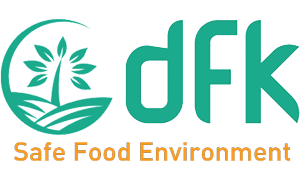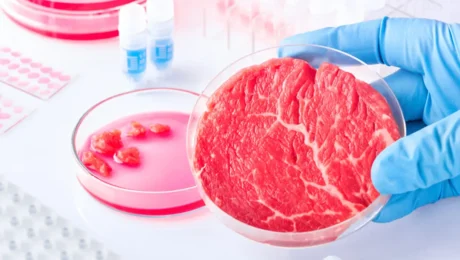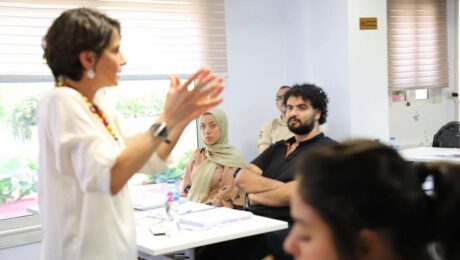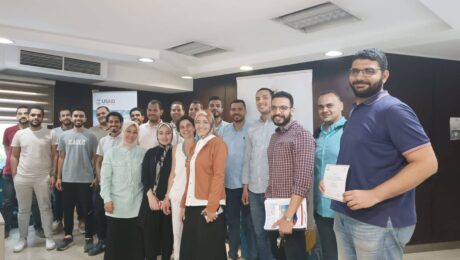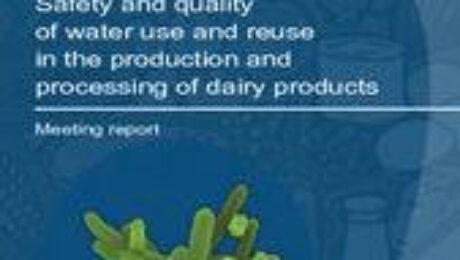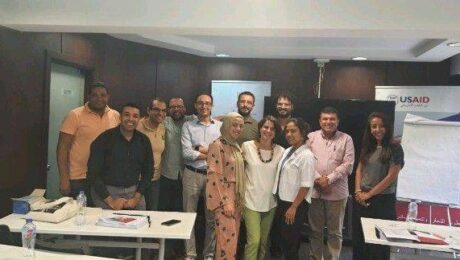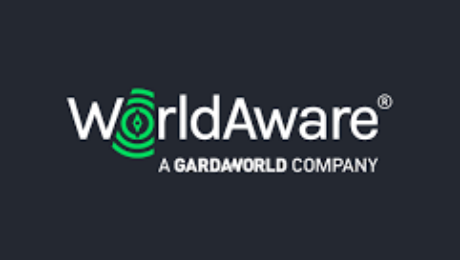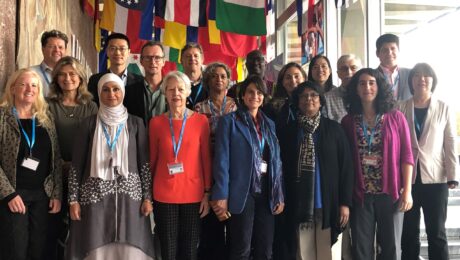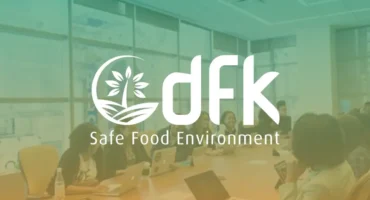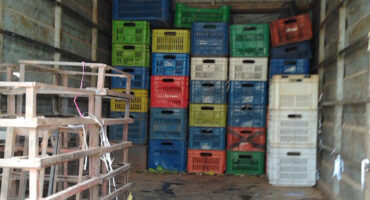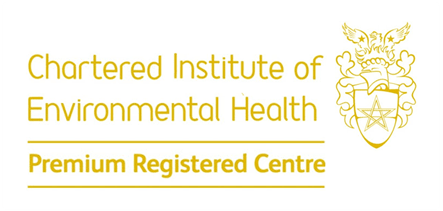Food labels review for entry to the US, EU and UK markets.
BioCraft Achieves Key Milestone in cell-cultured animal food ingredients
Wednesday, 26 March 2025
by Dr Faour Klingbeil
BioCraft has officially been registered with Austrian authorities to handle ABP Category 3, marking a significant step forward in the production of cell-cultured animal food ingredients for pet food producers across the EU. Dr. Faour-Klingbeil has been consulted for supporting the BioCraft team to develop a robust HACCP plan tailored to the unique cell-cultured processes in pet food production. This has been an insightful journey, as HACCP in this innovative environment demands patience, adaptability, and a data-driven approach. Dr. Faour-Klingbeil takes great pride to have assisted BioCraft’s team in their dedication to ethical innovation and unwavering commitment to product safety.
PCQI Version 2.0 starting 2025!
Thursday, 07 November 2024
by Dr Faour Klingbeil
DFK for Safe Food Environment is constantly committed to staying at the forefront of food safety education to ensure our clients and delegates have access to the most up-to-date and relevant information. We are thrilled to announce that we have successfully completed the the lead instructor refresher for the new FSPCA Preventive Controls for Human Food v.2 course, reinforcing my dedication to providing top-quality training aligned with the latest standards and best practices. But that’s not all! As part of my ongoing efforts to enhance the knowledge and expertise of food safety professionals, we are excited to share that in 2025, I will be rolling out the updated PCQI (Preventive Controls Qualified Individual) curriculum. This curriculum, designed by the Food Safety Preventive Controls Alliance (FSPCA), reflects the newest updates in food safety regulations, ensuring that delegates are prepared to meet the evolving needs of the industry. As food safety standards continue to evolve, the new curriculum will integrate the most recent updates from the FDA and FSMA (Food Safety Modernization Act), providing delegates with an in-depth understanding of how these changes impact food safety practices and compliance. What’s New with the PCQI Updated Curriculum? The upcoming PCQI curriculum is designed to address the latest challenges and developments in the food industry. Here’s a sneak peek at what the new version will bring to our delegates: Stay tuned for more information on the PCQI 2025 curriculum. Meanwhie, I continue to offer the standard official FSPCA PCQI program on demand, in-house, or in presence. The scheduled courses for 2025 – which will likely be the new version- are found in our training calendar, click on this LINK. For more details or help to register for upcoming courses, don’t hesitate to reach out!
DFK Supports SMEs and Stakeholders Through the USAID TRADE Project on Export Enhancement Program
Tuesday, 26 March 2024
by Dr Faour Klingbeil
As part of the Export Enhancement Program under the USAID TRADE project, in collaboration with the Food Export Council (FEC), DFK has been dedicated to supporting SMEs and key stakeholders by enhancing their knowledge and capabilities. This initiative, which began in September 2022, continued through multiple training sessions held on: The objective of these sessions was to train and build the capacity of industry delegates and trainers on the FDA requirements under the FSMA preventive controls rule key and topics essential for international trade compliance and food safety, including: This effort continued through 2024 with the development of Trainer of Trainers (ToT) guidance documents, including: Through this project, DFK is empowering SMEs with the critical knowledge and skills needed to meet international standards, fostering safer food products and enhancing export capabilities.
DFK Empowers FEC Members for Global Food Export Success – A USAID Trade Reform & Development Projecy in Egypt (TRADE)
Tuesday, 26 September 2023
by Dr Faour Klingbeil
DFK has been entrusted with the development and delivery of an extensive training program as part of the three-day Export Enhancement Program, held by USAID TRADE, in collaboration with the Food Export Council (FEC), from 24-26 July, 2023 at FEC premises. With a remarkable turnout of over 60 participants, the workshop delved into vital topics, including EU and US food labeling requirements and allergen control programs. Its overarching goal was to fortify the capabilities of FEC members, enabling them to not only meet rigorous EU and US food safety regulations but also to thrive in expanding their presence in export markets. The upcoming training session scheduled for the end of November 2023 will focus on the development of a Food Safety Culture plan. Stay tuned for further updates on our journey to elevate food safety standards and empower our partners in the industry.
Safety and quality of water use and reuse in the production and processing of dairy products
Wednesday, 07 June 2023
by Dr Faour Klingbeil
In 2020, the 43rd session of the Codex Alimentarius Commission approved the new work entitled “Development of Guidelines for the Safe Use and Reuse of Water in Food Production” proposed by the 51st session of the Codex Committee on Food Hygiene. To support this work, the Joint FAO/WHO Expert Meeting on Microbiological Risk Assessment (JEMRA) was asked to provide scientific advice regarding safe use and reuse of water in the dairy sector. Dr. Dima participated in the JEMRA experts panel tasked to provide clear and practical guidance on risk-based approaches to assess and manage fit-for-purpose water sourcing, use and reuse in the dairy sector. The collective efforts led to publication of a report that describes the application of the concept of fit-for-purpose water for use in the production and processing of dairy products. Report available in this link: FAO & WHO. 2023. Safety and quality of water use and reuse in the production and processing of dairyproducts – Meeting report. Microbiological Risk Assessment Series, No. 40. Rome, FAO.https://doi.org/10.4060/cc4081en
USAID Trade Reform & Development in Egypt (TRADE)- September 2022
Tuesday, 04 October 2022
by Dr Faour Klingbeil
As part an on-going integrated capacity enhancement initiative of the USAID TRADE project to strengthen the Egyptian Food Export Council (FEC) and their members’ capacity to access the US market, Dr Faour-Klingbeil delivered the official course “Preventive Controls Qualified Individual (PCQI)” for 12 SMEs at the FEC premises from 20-22 September 2022. The course aimed to support Egyptian SMEs in the food sector better understand how to develop a Food Safety Plan and meet the FDA food safety requirements to improve compliance and enhance their market access and food exports. As part an on-going integrated capacity enhancement initiative of the USAID TRADE project to strengthen the Egyptian Food Export Council (FEC) and their members’ capacity to access the US market, Dr Faour-Klingbeil delivered the official course “Preventive Controls Qualified Individual (PCQI)” for 12 SMEs at the FEC premises from 20-22 September 2022. The course aimed to support Egyptian SMEs in the food sector better understand how to develop a Food Safety Plan and meet the FDA food safety requirements to improve compliance and enhance their market access and food exports.
Strengthening the institutional landscape and resilience to crises in food safety in Tunisia
Friday, 17 September 2021
by Dr Faour Klingbeil
DFK has joined as a team leader in the project “Strengthening Food Safety and Consumer Health Protection in Tunisia, ” implemented within the main technical cooperation framework between Germany and Tunisia. This project is set by the German Federal Institute for Risk Assessment and the Federal Office of Consumer Protection and Food Safety (BVL), supported by the German Federal Ministry for Economic Development & cooperation. The research project aims to strengthen the institutional capacities and resilience of the food safety system in Tunisia. The research team will identify stakeholder roles and responsibilities through stakeholder analysis by applying the participatory net-mapping method to illustrate the level of coordination and cooperation between the different Tunisian actors in the food safety sector. In addition, the team will assess the capacities and needs of the supply chain stakeholders to identify strengths and weaknesses and formulate strategies to address gaps and capacity-building needs. A food safety crisis simulation and an analysis of the national food outbreak management and response mechanisms will be conducted to explore the level of resilience of the system and craft targeted strategies to prevent foodborne diseases.
Crisis management and response services
Friday, 24 July 2020
by Dr Faour Klingbeil
DFK for Safe Food Environment is contracted by the WorldAware Limited to provide crisis management consultancy and response services to mitigate and resolve: Accidental Product Contamination Response to Product Extortion Response to Malicious Product Tampering Response to Product Recall in addition to auditing and training Audits, third party audit preparation, threat Assessments, investigation and risk assessments
Joint FAO/WHO Expert meeting on the Safety and Quality of Water Used in Food Production and Processing
Saturday, 14 September 2019
by Dr Faour Klingbeil
Dr. Dima was invited to participate in the Joint FAO/WHO Expert meeting on the Safety and Quality of Water Used in Food Production and Processing in Geneva, Switzerland, 23-27 September 2019. The purpose of the meeting was to develop clear and practical guidance on the criteria and parameters that can be used to determine if water is ‘fit-for-purpose’ for several different agricultural purposes. This work is still under review. As a member of the FAO/WHO joint Expert Meeting on the Microbiological Risk Assessment (JEMRA), she contributed to developing practical guidance and fit-for-purpose microbiological criteria for water used in fresh fruit and vegetables and the published WHO document. Enjoy the read: FAO and WHO 2021. Safety and quality of water used with fresh fruits and vegetables. Microbiological Risk Assessment Series No. 37. Rome. https://doi.org/10.4060/cb7678en
Tagged under:
FAO, Fit-for-purpose, Food Safety, Risk assessment, Wastewater reuse, WHO, WHO guidelines
Contracted auditing services – Gluten-Free Certification Organization (GFCO)
Saturday, 17 November 2018
by Dr Faour Klingbeil
Dr. Dima is contracted by the Gluten-Free Certification Organization (GFCO), the leader in gluten-free certification, to provide auditing services for the gluten-free food products and related production processes. The auditing services cover a wide range of product categories, and national and international food processing facilities to ensure compliance with the GFCO Certification Standards.
- 1
- 2
